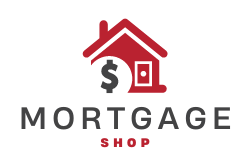A conventional loan is a type of mortgage loan that is not insured by the government. Conventional loans are offered by private lenders, such as banks and credit unions, and typically require a down payment of 20% of the purchase price.
Conventional loans are often for larger loan amounts and are available for both purchases and refinances. They also come with a variety of loan terms, including fixed-rate and adjustable-rate mortgages.
When considering a conventional loan, potential borrowers should consider their credit score and debt-to-income ratio, as these will determine what interest rate and terms will be offered. Borrowers should also be aware of any additional fees that may be associated with the loan, such as origination fees and closing costs.
In addition to the down payment, borrowers may need to have funds available for private mortgage insurance (PMI) if their loan-to-value ratio is greater than 80%. PMI is a type of insurance that protects the lender in the event that the borrower defaults on the loan.
Overall, conventional loans can be a great option for borrowers who have a good credit score, a low debt-to-income ratio, and enough money for a down payment and closing costs. By meeting these requirements, borrowers can be sure to get the best possible loan terms and interest rate.Conventional Loan Basics
